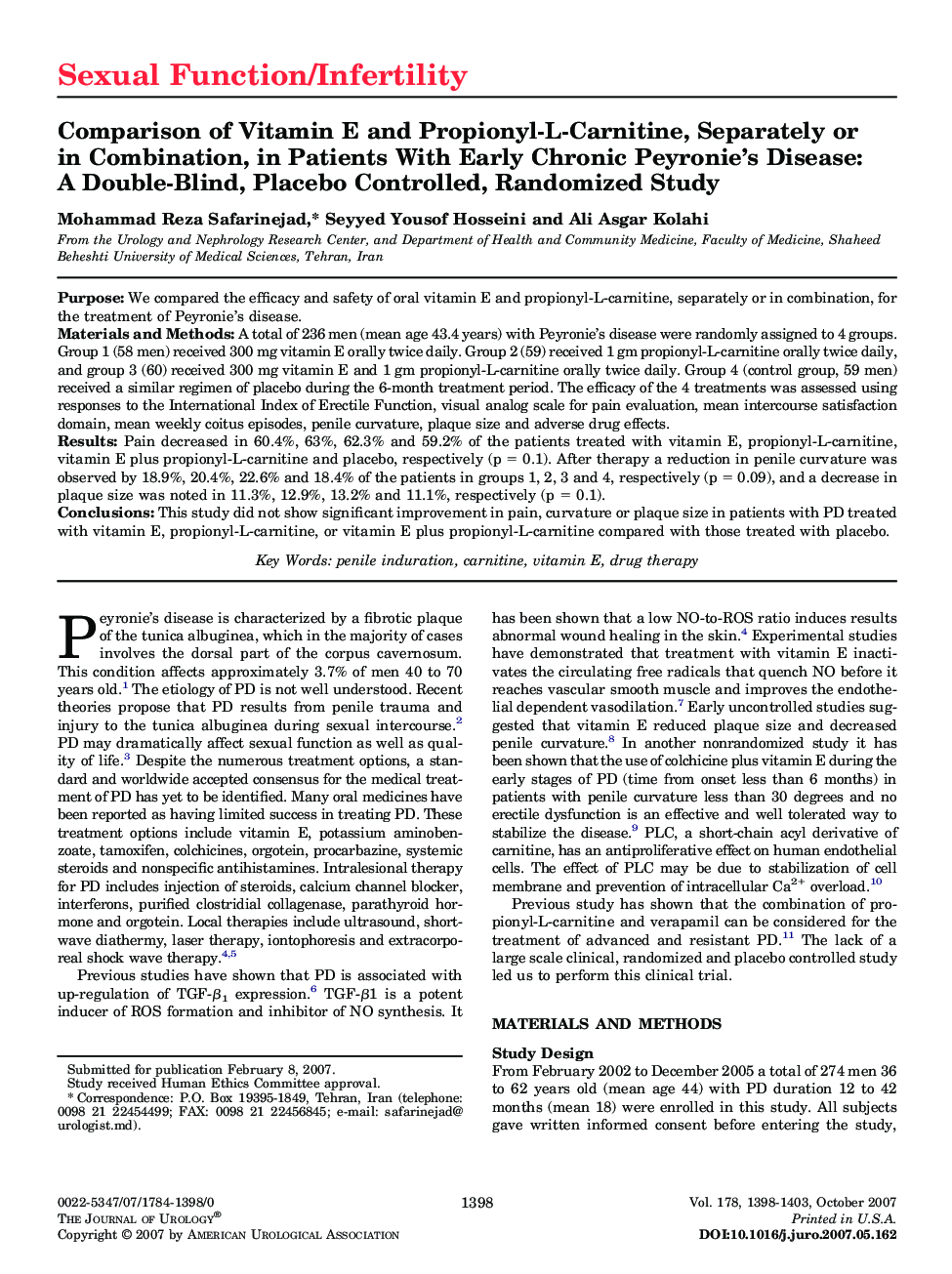| Article ID | Journal | Published Year | Pages | File Type |
|---|---|---|---|---|
| 3875663 | The Journal of Urology | 2007 | 6 Pages |
PurposeWe compared the efficacy and safety of oral vitamin E and propionyl-L-carnitine, separately or in combination, for the treatment of Peyronie’s disease.Materials and MethodsA total of 236 men (mean age 43.4 years) with Peyronie’s disease were randomly assigned to 4 groups. Group 1 (58 men) received 300 mg vitamin E orally twice daily. Group 2 (59) received 1 gm propionyl-L-carnitine orally twice daily, and group 3 (60) received 300 mg vitamin E and 1 gm propionyl-L-carnitine orally twice daily. Group 4 (control group, 59 men) received a similar regimen of placebo during the 6-month treatment period. The efficacy of the 4 treatments was assessed using responses to the International Index of Erectile Function, visual analog scale for pain evaluation, mean intercourse satisfaction domain, mean weekly coitus episodes, penile curvature, plaque size and adverse drug effects.ResultsPain decreased in 60.4%, 63%, 62.3% and 59.2% of the patients treated with vitamin E, propionyl-L-carnitine, vitamin E plus propionyl-L-carnitine and placebo, respectively (p = 0.1). After therapy a reduction in penile curvature was observed by 18.9%, 20.4%, 22.6% and 18.4% of the patients in groups 1, 2, 3 and 4, respectively (p = 0.09), and a decrease in plaque size was noted in 11.3%, 12.9%, 13.2% and 11.1%, respectively (p = 0.1).ConclusionsThis study did not show significant improvement in pain, curvature or plaque size in patients with PD treated with vitamin E, propionyl-L-carnitine, or vitamin E plus propionyl-L-carnitine compared with those treated with placebo.
